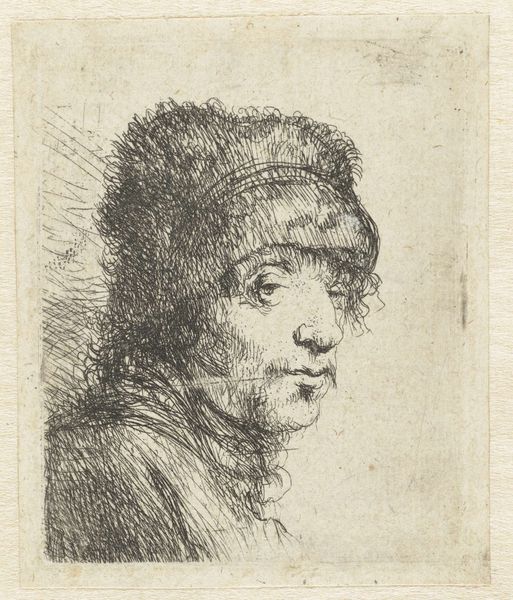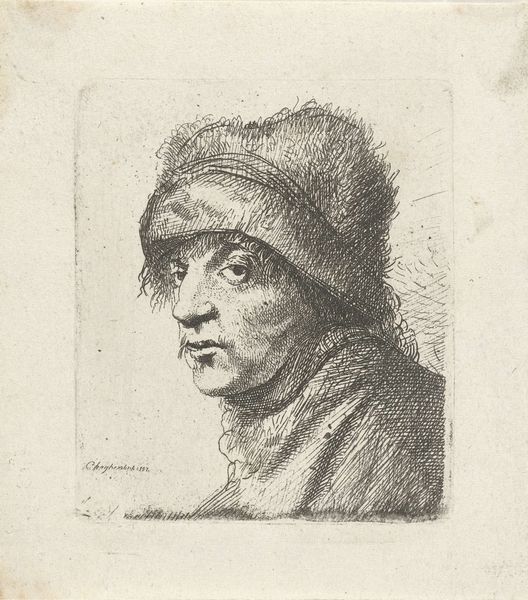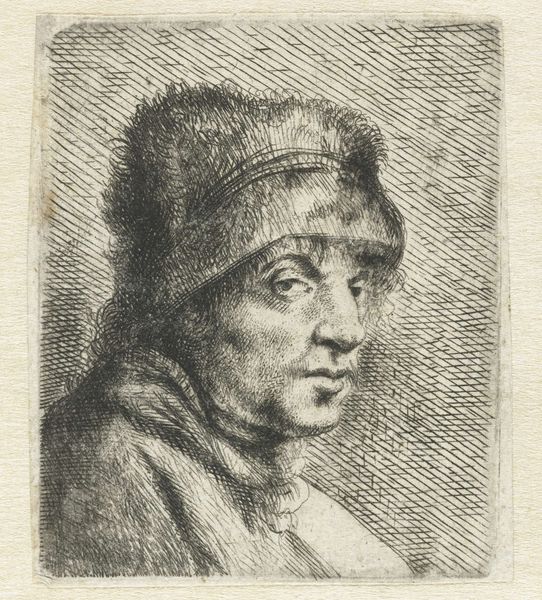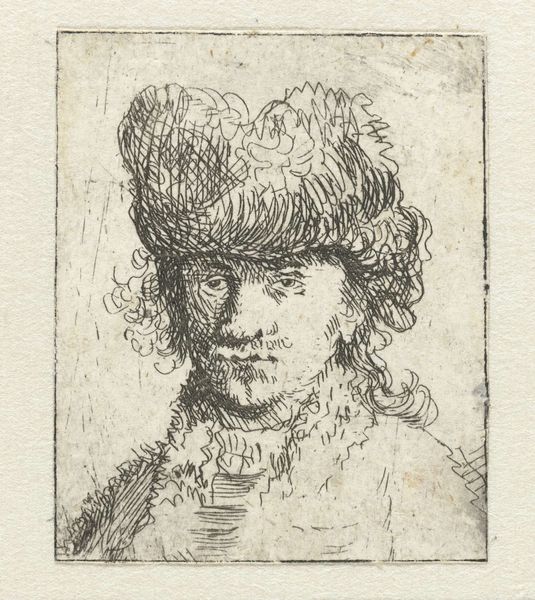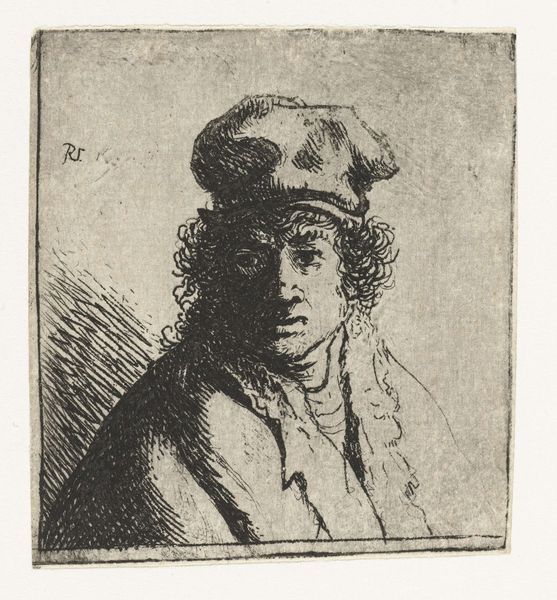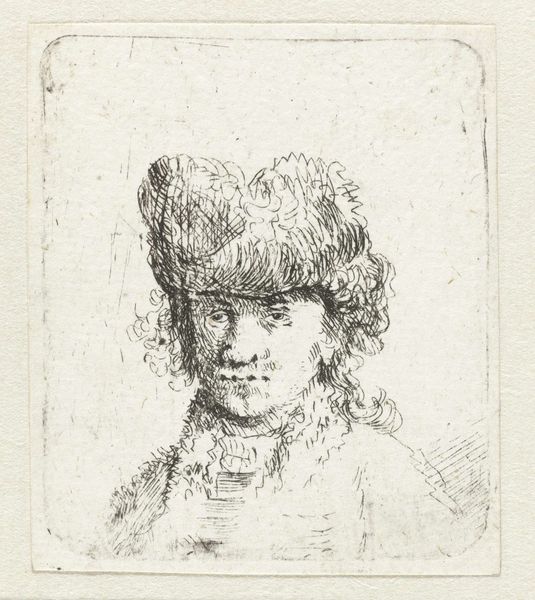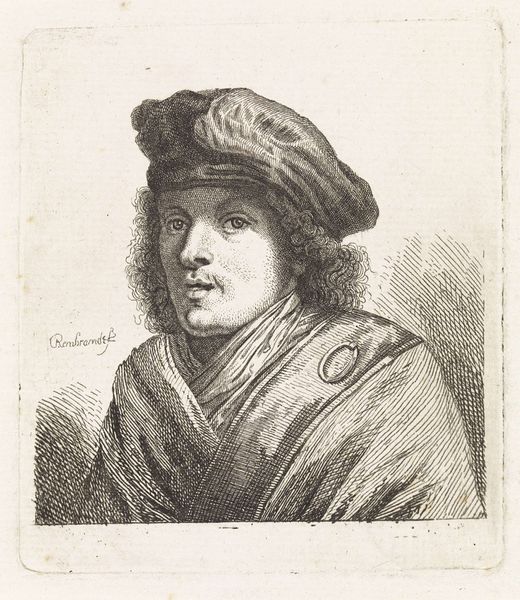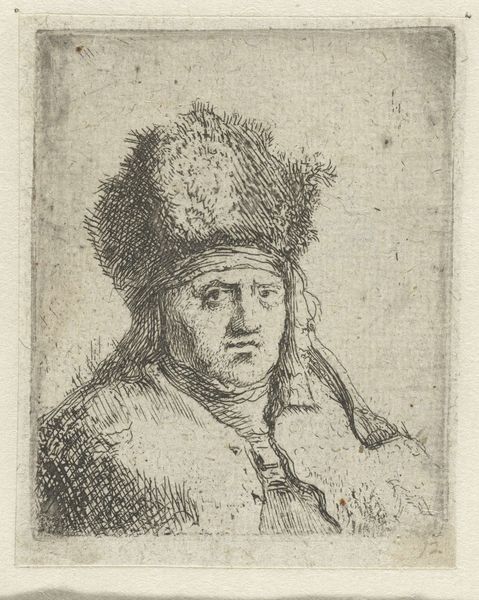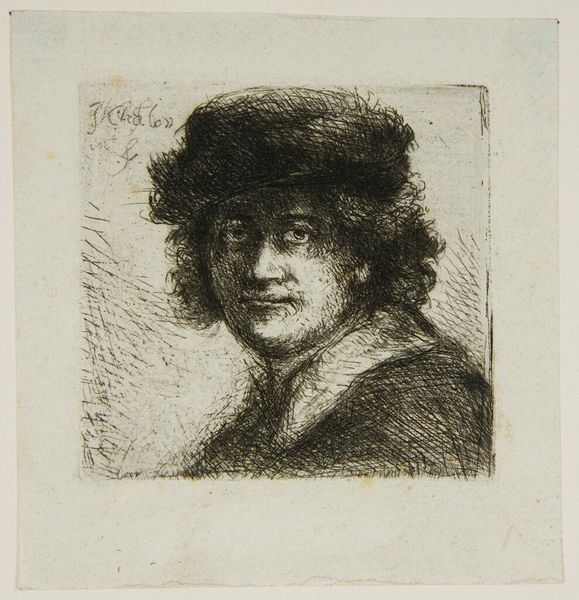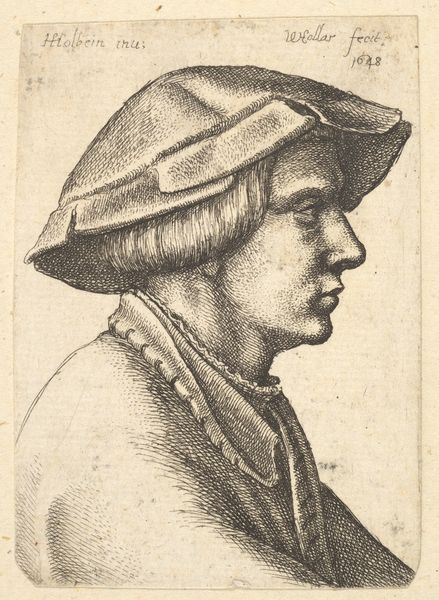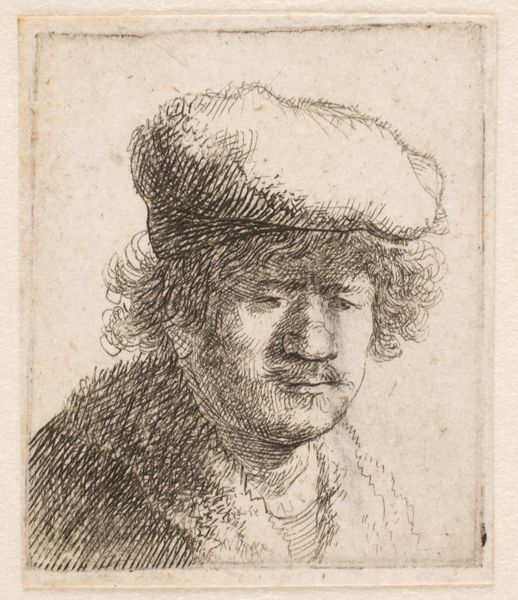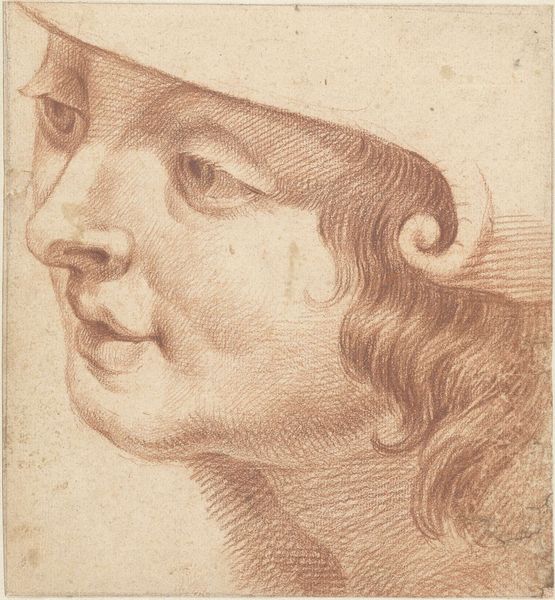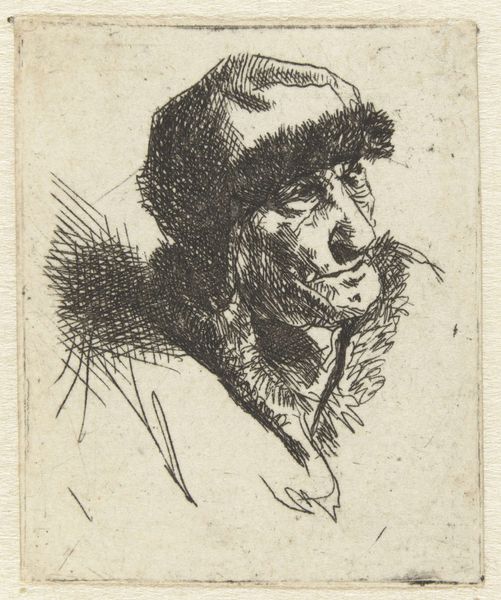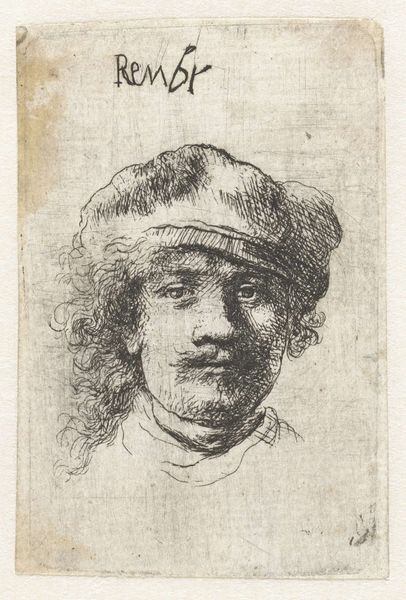
print, etching
#
portrait
#
baroque
#
dutch-golden-age
# print
#
etching
#
figuration
#
line
#
portrait drawing
Dimensions: height 75 mm, width 59 mm
Copyright: Rijks Museum: Open Domain
Jan Lievens made this etching, titled "Head of a Man with a Cap," sometime in the 17th century. The image is rendered with such fine lines, it gives you a sense of the artist's concentrated labor. Lievens used a technique called etching, where a metal plate is coated with wax, the design is scratched into the wax, and then acid is applied to bite into the exposed metal, creating the lines that hold ink. It’s a process capable of capturing incredible detail, as you can see in the texture of the man's hair and the subtle modeling of his face. The controlled nature of the etching allows for the intricate network of lines, giving the image its distinctive visual character. Prints like these were relatively affordable, and they circulated widely. The image likely captures the character of an ordinary person. In his distinctive printmaking technique, Lievens elevated the status of his subject, while also contributing to the broader distribution of images during his time. This is a perfect example of how the means of production influences our understanding of an artwork, inviting us to reconsider traditional hierarchies between fine art and everyday life.
Comments
No comments
Be the first to comment and join the conversation on the ultimate creative platform.
